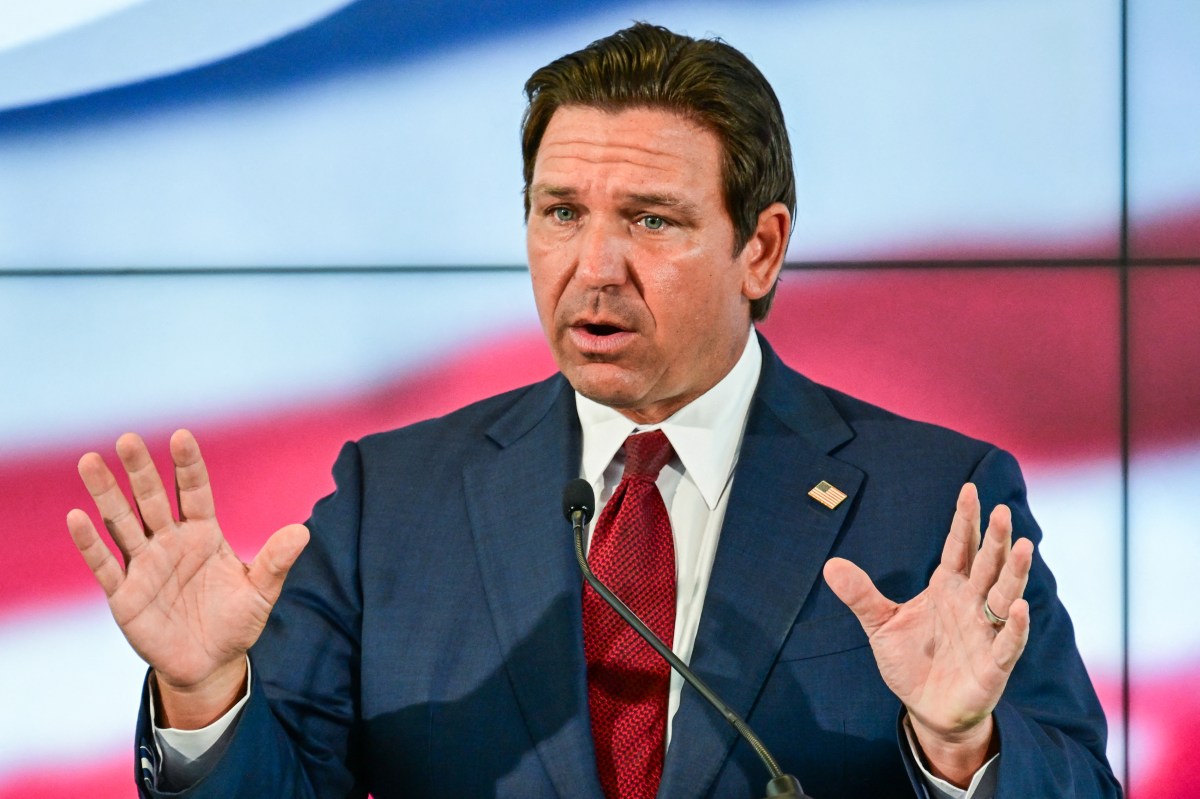UPDATE: Florida Governor Ron DeSantis is facing intense scrutiny over his recent push to eliminate property taxes in the state, with critics suggesting this move is more about positioning for a potential 2028 presidential bid than genuine reform. Former state senator Jeff Brandes stated during a forum in Tampa on November 13, 2023, that DeSantis’ tax elimination plan is merely a “bumper sticker” strategy aimed at voters.
Brandes pointed out that DeSantis’ rhetoric around property tax cuts serves as a talking point for future campaigns rather than a substantial policy proposal. “If you’re running for president in 2028, you want to be able to say, ‘I argued to cut taxes in Florida,’” Brandes emphasized, highlighting the disconnect between DeSantis’ promises and actionable plans.
DeSantis previously asserted his support for abolishing property taxes, labeling them as “oppressive” and ineffective. In a February 2023 statement, he acknowledged that eliminating these taxes would require a constitutional amendment, necessitating 60 percent voter approval. Yet, he has consistently urged swift legislative action to provide immediate relief to Floridians facing skyrocketing property taxes, proposing $1,000 rebate checks for homeowners.
Despite this push, state lawmakers have struggled to unify around a clear solution. In October 2023, the Florida House of Representatives advanced multiple proposals aimed at reducing property taxes, with seven slated for the 2026 general election ballot. However, critics, including DeSantis, condemned this approach as a political maneuver rather than a serious commitment to tax reform.
DeSantis expressed frustration over the lack of urgency among lawmakers, stating, “Truly owning private property should not mean perpetually paying rent to the government.” He has also criticized the multitude of bills as an attempt to dilute effective solutions, arguing that it represents a failure to act decisively for Florida homeowners.
In response, House Speaker Daniel Perez argued that presenting multiple options allows voters to determine their preferred course of action. He challenged DeSantis by claiming the governor has yet to propose a concrete plan, stating, “It’s unclear what he wants to do.”
Brandes echoed this skepticism, suggesting that the proposed bills are unlikely to pass without significant modifications. He expressed concern over DeSantis’ lack of a detailed strategy, stating, “He’s had a year to come up with a plan and has refused to do so.”
As speculation grows around DeSantis’ political future, he has downplayed inquiries regarding a 2028 presidential run. On November 12, he told CNN’s Jake Tapper that his focus remains on current governance rather than future ambitions, asserting, “We’ve got a lot that we’ve got to accomplish.”
Recent polling from Emerson College paints a challenging picture for DeSantis, showing him with only 2 percent support in a hypothetical Republican primary, significantly trailing behind Vice President JD Vance, who commands 54 percent support.
As the debate over property taxes continues, Florida residents are left to ponder the implications of these political maneuvers. Will DeSantis deliver on his promises, or is this just a strategy for future elections? Stay tuned as this story develops.
